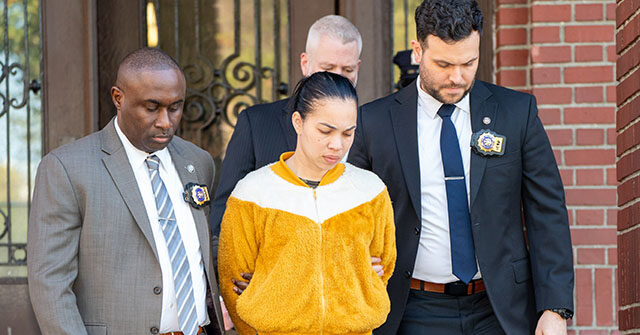In a deeply unsettling case that has captured national attention, a New York City woman, Grei Mendez, has pled guilty to federal drug charges related to the tragic death of a toddler, Nicholas Dominici, who ingested fentanyl at her daycare in September 2023. As reported by the Associated Press, Mendez accepted responsibility for her role in a conspiracy to distribute narcotics that ultimately led to the demise of the child. This case raises significant concerns regarding the implications of drug trafficking on innocent lives and has drawn scrutiny toward broader social issues including drug policy and law enforcement.
Mendez’s husband, Felix Herrera Garcia, who was implicated in the operation, has faced severe penalties for his actions. Recently sentenced to 45 years in prison, Garcia was apprehended after fleeing to Mexico, showcasing the lengths individuals may go to evade justice while remaining involved in drug distribution activities. His arrest and subsequent sentencing highlight organized crime’s intersection with community institutions, as the daycare ostensibly served as a front for illicit activities. These developments draw attention to questions about oversight and regulation in childcare settings, further complicating discussions about safety and accountability.
In her guilty plea, Mendez emotionally confessed her involvement in the narcotics operation, describing how her husband had encouraged her to open the daycare under the guise of providing a legitimate service. It became painfully clear to her that the establishment was exploited as a convenient cover for Garcia’s drug dealings. Law enforcement’s investigation revealed a shocking scene at the daycare, where a substantial cache of fentanyl and related paraphernalia was discovered, hidden in play areas meant for children. This revelation underscores the appalling reality of drugs infiltrating spaces designated for vulnerable populations and raises alarm about the safety protocols in place within such environments.
Shockingly, three other children who were present during the operations were subsequently exposed to fentanyl yet managed to survive after receiving Narcan, a medication used to reverse opioid overdoses. This aspect of the case illustrates the immediate dangers posed by drug trafficking, particularly within childcare settings where children are at the mercy of the adult decisions being made around them. As the community grapples with the implications of this incident, there is a growing call for stricter regulations to prevent such establishments from being misused for criminal purposes.
The backdrop of this tragedy has been further tangled in discussions about the current administration’s border policies, with critics claiming that insufficient measures to control drug trafficking across the southern border have contributed to the ongoing opioid crisis. Since President Joe Biden and Vice President Kamala Harris took office, an astounding 34.3 tons of fentanyl have been seized, a figure that highlights the scale of the problem facing many American communities. Critics assert that the administration has not done enough to stem the tide of drug influx, pointing to real-life consequences, including fatalities such as that of Nicholas Dominici.
As Mendez faces a potential 20-year minimum sentence and the prospect of life in prison, her case serves as a poignant reminder of the devastating impact of the ongoing drug epidemic, particularly its toll on the most innocent. While the judicial system works its course, there looms a broader question about societal responsibility, preventive measures, and the need for comprehensive approaches to combat drug-related violence and protect vulnerable populations. As communities mourn the loss of Nicholas, there is an imperative to address the root causes of such tragedies to ensure that no child has to face the dangers posed not just by drugs, but by the systems that are supposed to protect them.

